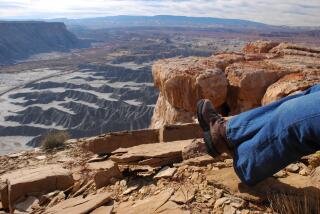Trump team has a plan for national parks: Amazon, food trucks and no senior discounts
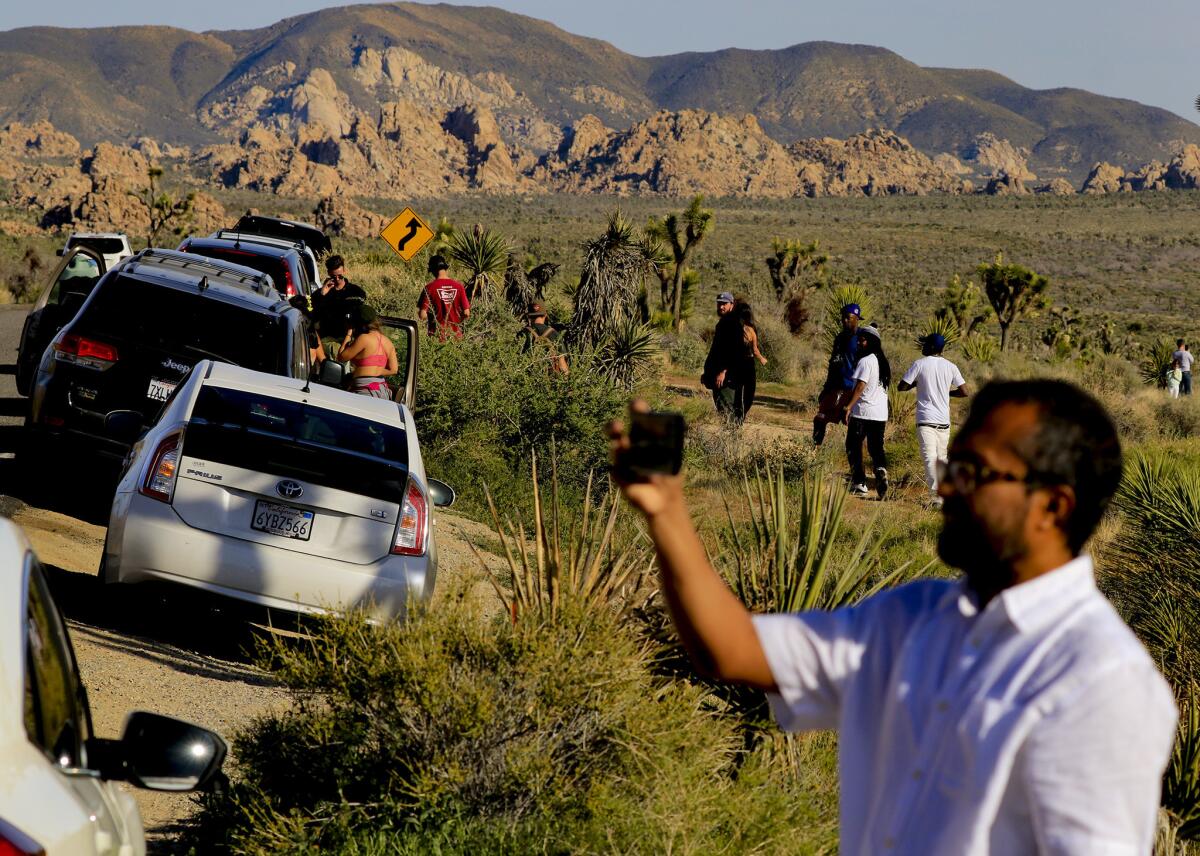
- Share via
At the urging of a controversial team of advisors, the Trump administration is mulling proposals to privatize national park campgrounds and further commercialize the parks with expanded Wi-Fi service, food trucks and even Amazon deliveries at tourist camp sites.
Leaders of the Interior Department’s “Made in America” Outdoor Recreation Advisory Committee say these changes could make America’s national parks more attractive to a digitally minded younger generation and improve the quality of National Park Service facilities amid a huge maintenance backlog. As part of its plan, the committee calls for blacking out senior discounts at park campgrounds during peak holiday seasons.
“Our recommendations would allow people to opt for additional costs if they want, for example, Amazon deliveries at a particular campsite,” said Derrick Crandall, vice chairman of the committee and a counselor with the nonprofit National Park Hospitality Assn. “We want to let Americans make their own decisions in the marketplace.”
But the group’s proposals face angry opposition from conservation organizations and senior citizen advocates, who call them a transfer of public assets to private industry, including businesses led by executives appointed to the Outdoor Advisory Committee.
“America’s outdoor heritage is on the line,” said Jayson O’Neill, deputy director of the Western Values Project, a nonprofit public lands watchdog group in Montana. “The trouble with these recommendations is that they were written by concessionaire industry representatives vying for more control of national parks.”
The proposal to restrict the use of senior discounts drew a sharp response from Bill Sweeney, senior vice president of government affairs at AARP.
“This proposal is an insulting attempt to push older Americans out of our national parks,” he said. “The cost of a senior pass already jumped in recent years from $10 to $80, and this proposal would further hurt older Americans who want to visit national parks. Enough is enough.”
Crandall and the advisory committee were somewhat surprised by the backlash, especially from groups representing retirees and the elderly.
“If we’d known there’d be a big pushback to proposed blackouts on senior discounts, we might have dropped that off the list,” Crandall said. “All we’re saying is that it may not make sense on peak days like July 4 weekend to let seniors compete with a family with kids for a campsite.”
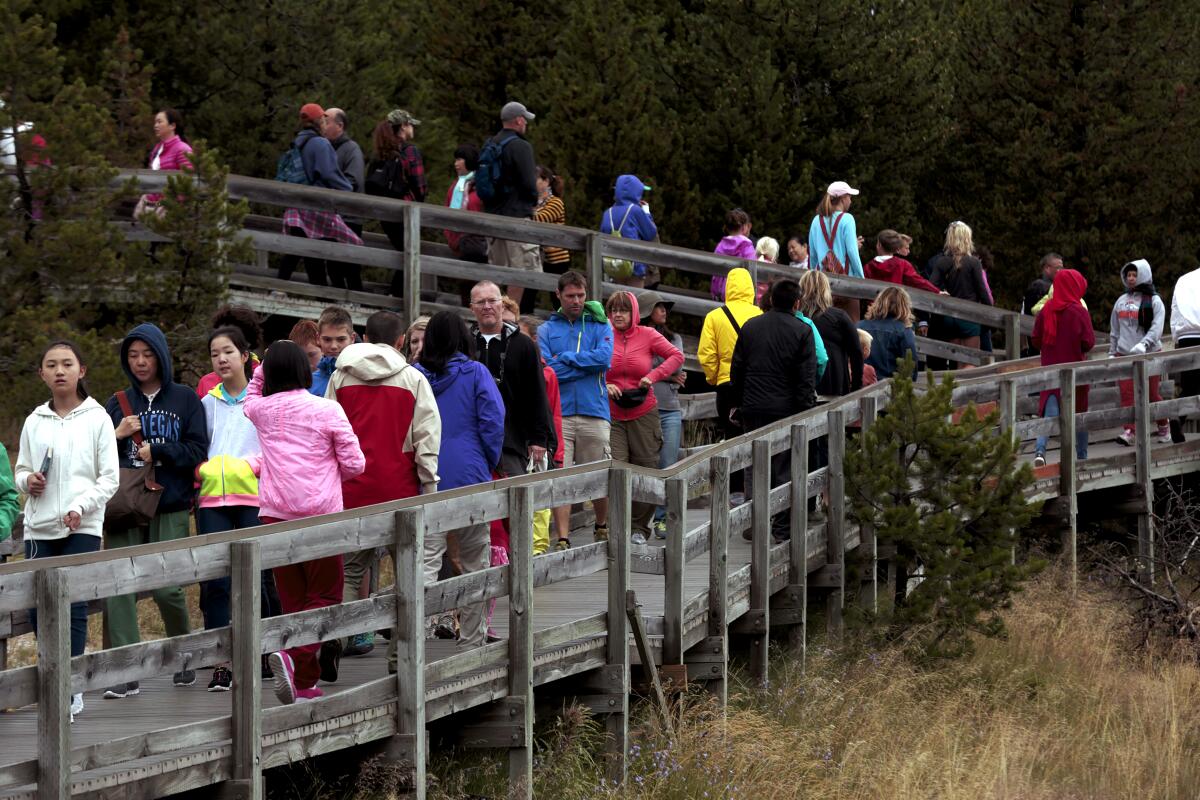
Since taking office, President Trump and his administration have sought to privatize an array of public services, including parts of the Veterans Administration and the U.S. Postal Service. At the same time, the White House has sought to reduce spending for many public services, such as its plan to cut the National Park Service’s budget by $481 million in 2020.
Critics say the administration is engaged in a self-fulfilling prophesy, arguing that private industry can deliver better than the public sector even as the White House starves public agencies of resources. But what really angers opponents is how corporate donors and businesses with a vested interest in park privatization have been invited by the Trump administration to offer proposals for further concession opportunities.
According to a memo first published by the Washington Post, business services officials of the National Park Service in 2017 warned that four people nominated to serve on the panel had potential conflicts of interest.
Swedish teen Greta Thunberg, the face of the youth movement against global warming, joined her Los Angeles peers in a planned climate strike Friday.
Three of them were selected as members: Crandall, whose association includes some of the largest concessions management companies in the U.S.; Jeremy Jacobs Jr., co-chief executive of Delaware North Cos., Yosemite National Park’s former facilities operator, whose family has donated at least $167,700 to Trump’s campaigns and political committees; and Bruce Fears, president of Aramark, which holds a $2-billion contract to run hotels, eateries and campgrounds at Yosemite.
In 2017, Delaware North hired Brownstein Hyatt Farber Schreck, the Denver-based law and lobbying firm where Interior Secretary David Bernhardt previously worked.
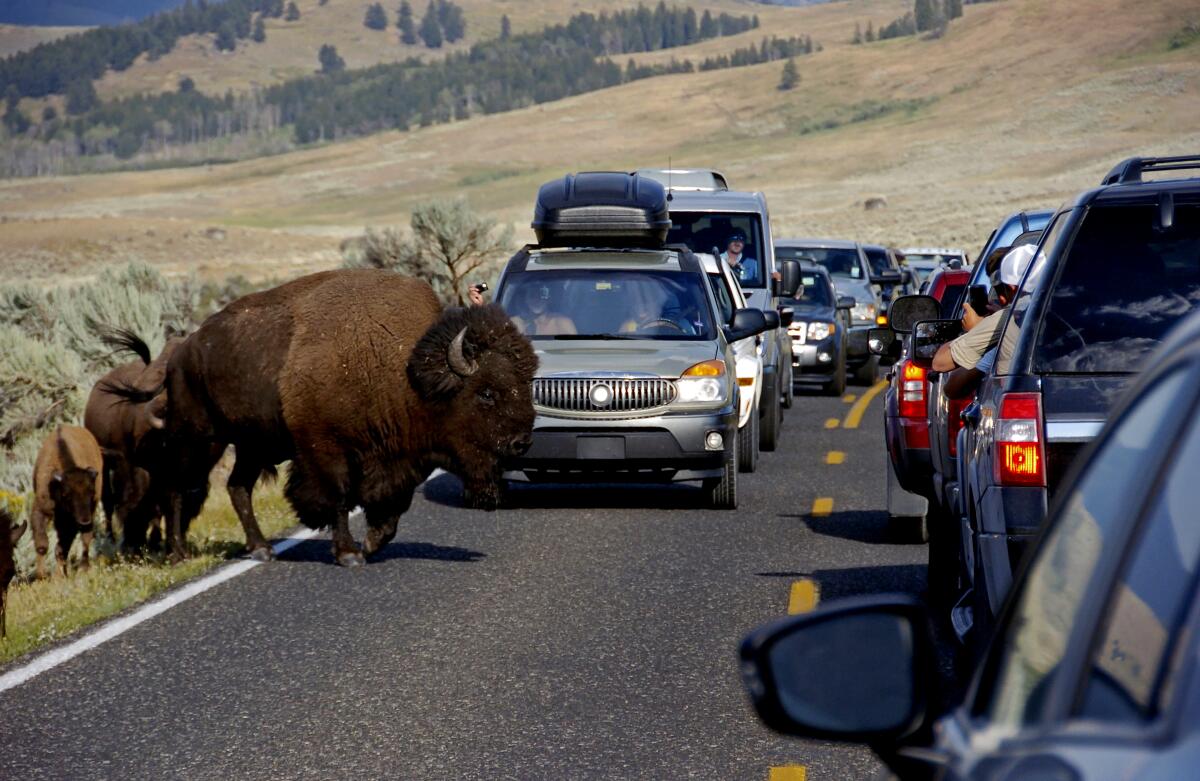
A few years ago, Delaware North became infamous for changing the name of a historic landmark in Yosemite, the Ahwahnee Hotel, to the Majestic Yosemite. The company made the change after losing out to Aramark in a bid to renew its concessions contract in Yosemite. Delaware North claimed it had intellectual property rights over the Ahwahnee name that could not be transferred to Aramark. Finally this year, the hotel’s name was restored after the U.S. government and Aramark paid the company $12 million to settle the legal battle.
Other committee members include Jim Rogers, former president of Kampgrounds of America, the largest privately owned campground system in the world, and Brad Franklin, government relations manager at Yamaha Motor Corp. USA, a producer of electric-powered bicycles.
Earlier this year, Bernhardt signed an order that allows electric bicycles to be used for the first time on federal trails in national wildlife refuges and national parks, a move he said will create “opportunities to explore areas of the great outdoors that were previously unreachable.”
Electric bikes are hardly the only new concession the administration is considering. Others include digital services, utilities, flushable toilets, hot and cold showers, equipment rentals, mobile camp stores, food trucks, kayaks and overnight tent rentals.
The committee’s proposals would make their concession contracts more profitable than ever. They call for “categorical permissions” to sidestep environmental impact reviews for campground expansion and development, and new policies to ensure that concessionaires be compensated for investments and assets when a competitor is awarded its contract.
“The corporate interests on this committee stand to financially benefit from the privatization and corporate giveaways they are empowered to make,” said Nicole Gentile, deputy director of public lands at the Center for American Progress, a liberal Washington think tank. “And they are strategically inflating the Park Service’s maintenance backlog to use it as a talking point to scare the public into accepting privatization as necessary in our national parks.”
As developers lobby the Trump administration for endangered species relief, California is moving to backstop wildlife threatened by federal rollbacks, including the San Bernardino kangaroo rat.
Bernhardt says nearly $12 billion is needed to meet the National Park Service’s maintenance needs. But Gentile, in a 2017 analysis, determined that only $1.3 billion of the backlog is considered priority maintenance by the service, and about $389 million is earmarked for concession facilities within national parks.
“Bernhardt’s claim is disingenuous,” Gentile said. “The concessionaires, and not taxpayers, should be paying for upkeeping their for-profit gift stores, hotels and campgrounds.”
Jeremy Barnum, a spokesman for the National Park Service, denied that Bernhardt was inflating the estimated costs of the agency’s backlog.
“Aging facilities, increased visitation and resource constraints have kept the maintenance backlog between $11 billion and $12 billion since 2010,” he said. “The agency is constantly reviewing its investment needs and how we track and characterize them to ensure they are done wisely.”
Concessionaires, he added, “are evaluated and held accountable for addressing any maintenance performance shortfalls.”
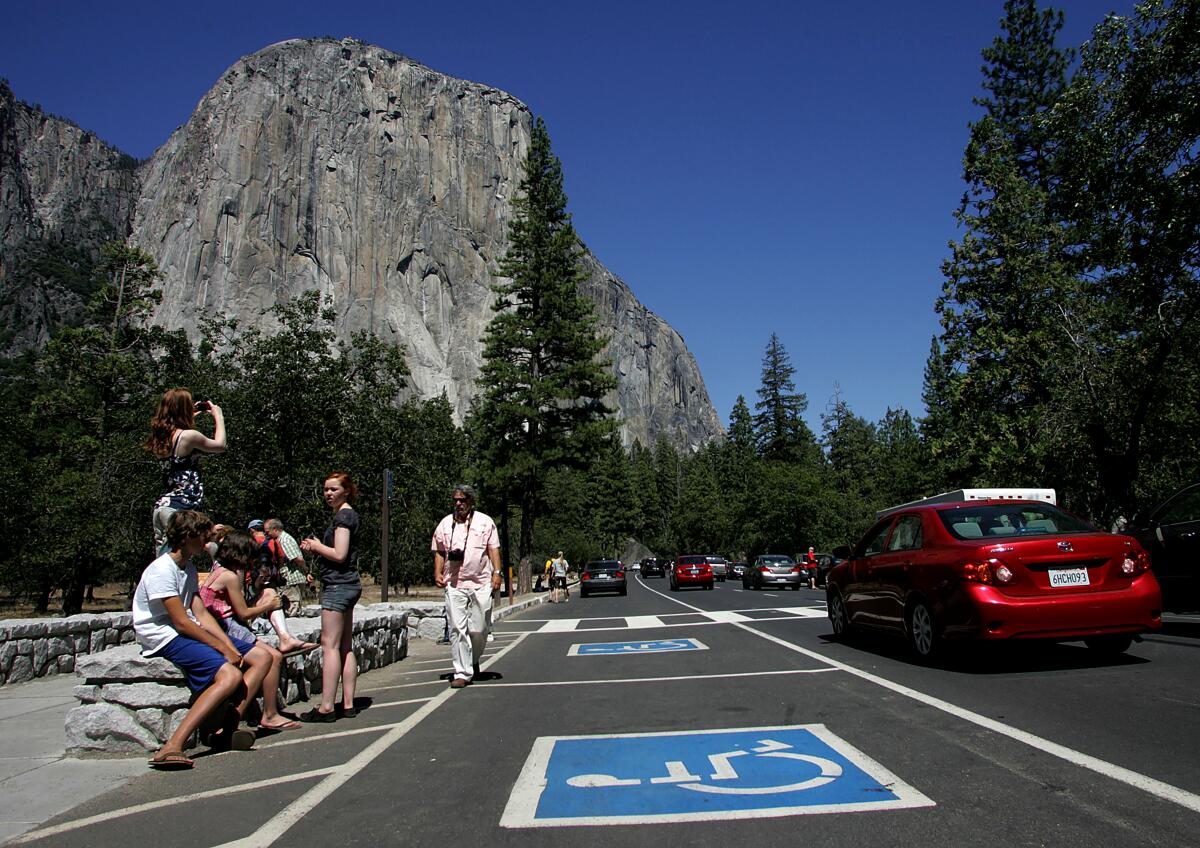
Former Interior Secretary Ryan Zinke, who resigned two years later amid investigations into his real estate dealings in his home state of Montana, organized the advisory committee in 2017. Up until then, federal land agencies and outdoors enthusiasts had reached something of an accord on privatization issues.
Both the U.S. Forest Service and the National Park Service continue to require that campgrounds run by concessionaires provide 50% discounts to seniors with appropriate passes.
But that delicate peace among competing interests could be upended.
“Now, it’s only the National Park Service that wants to stop giving senior discounts,” said Kitty Benzar, spokeswoman for the nonprofit Western Slope No-Fee Coalition. “Why? So their powerful concessionaires can maximize profits.”
Benzar acknowledged there “may be a market for the bells and whistles” the committee has proposed. “But there are a whole lot of other folks who will feel displaced and priced out.”
Each year, roughly 1 million Americans purchase senior passes, which allow people 62 and older to get free access to national parks and other federal recreation sites, and various discounts inside those public lands. In 2017, the Trump administration increased the cost of a lifetime senior pass from $10 to $80, and now it is mulling limitations to their uses.
“Do those families love Grandma and Grandpa and their discount passes? You bet!” Benzar said. “Senior discounts are the third rail of camping in national parks — don’t touch them!”
On Oct. 13, the National Park Service announced it was reassigning Yosemite National Park Supt. Mike Reynolds to a new position as a western regional director. Some parks advocates questioned if Reynolds was being reassigned because he raised concerns about a proposal to allow boats on the park’s Hetch Hetchy Reservoir, a claim the park service rejected.
Under the Trump administration, there’s a new emphasis on creating more tourist amenities and opportunities in some of the most valuable and vulnerable public land in the country, much of it in the West. This includes national parks such as Yosemite, Yellowstone, Glacier, Sequoia, Kings Canyon, Zion and Grand Canyon, among others.
Each year, about 318 million people surge into the park service’s 419 areas, which cover roughly 85 million acres, or about 3.4% of U.S. land.
They bring with them valuable tourist dollars that help neighboring towns, but their numbers also bring urban-style traffic jams, vandalism and increasing environmental damage to the surrounding wildlands.
At Yosemite on especially busy weekends, visitors may find themselves diverted to alternative routes away from Yosemite Valley, or back out of the park, after paying an entrance fee of $30. Leaders of Trump’s advisory committee say outside investment can help national parks manage the crowds and accommodate everyone who wants to visit.
“Our solution to the problems facing the park service is to look at enlisting private capital to wipe out the massive deferred maintenance backlog — and introduce the kinds of services that today’s campers seek,” Crandall said. “Certainly, what we’ve been doing for the past 30 years is not working well.”
But Jeffrey Jenkins, a professor of public lands at UC Merced, suggests “the free-market impetus behind the push toward tourism-based economies within national parks is a slippery slope.”
“The moment you try to accommodate existing crowds,” he said, “you facilitate more demand and use in federal land originally intended to serve as a baseline of the American frontier experience.
“Some would say the future is already here,” he added. “Twice as many people are employed by concessionaires at Yosemite than by the National Park Service.”



